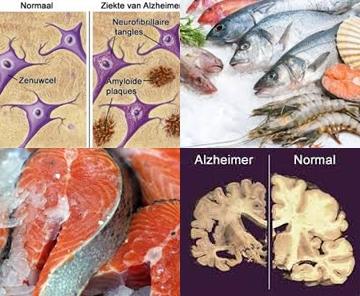
Objectives:
Epidemiological studies have presented inconsistent evidence of the correlation between a fish-oriented dietary intake (FDI) and the risk of cognitive decline. Therefore, this meta-analysis (review article) has been conducted.
Does a fish-oriented dietary intake reduce risk of cognitive decline?
Study design:
This review article included 9 cohort studies containing 28,754 subjects.
Limited evidence involving heterogeneity was found within subgroups or across studies.
Results and conclusions:
The investigators found when comparing the highest versus lowest categories of fish consumption a significant reduced risk of 20% [RR = 0.80, 95% CI = 0.65-0.97] for dementia of Alzheimer type (DAT).
The investigators found the dose-response synthesized data indicated that a 100-g/week increase in fish intake reduced the risk of dementia of Alzheimer type by an additional 12% [RR = 0.88, 95% CI = 0.79-0.99].
The investigators found that the reduced risk of dementia of all causes (DAC) and mild cognitive impairment (MCI) was non-significant.
The investigators concluded that a higher intake of fish, at least 100-g/week is correlated with a reduced risk of dementia of Alzheimer type.
Original title:
An exploration of the role of a fish-oriented diet in cognitive decline: a systematic review of the literature by Zeng LF, Cao Y, […], Wang NS.
Link:
https://www.ncbi.nlm.nih.gov/pubmed/28418899
Additional information of El Mondo:
Find more information/studies on fish consumption and elderly right here.